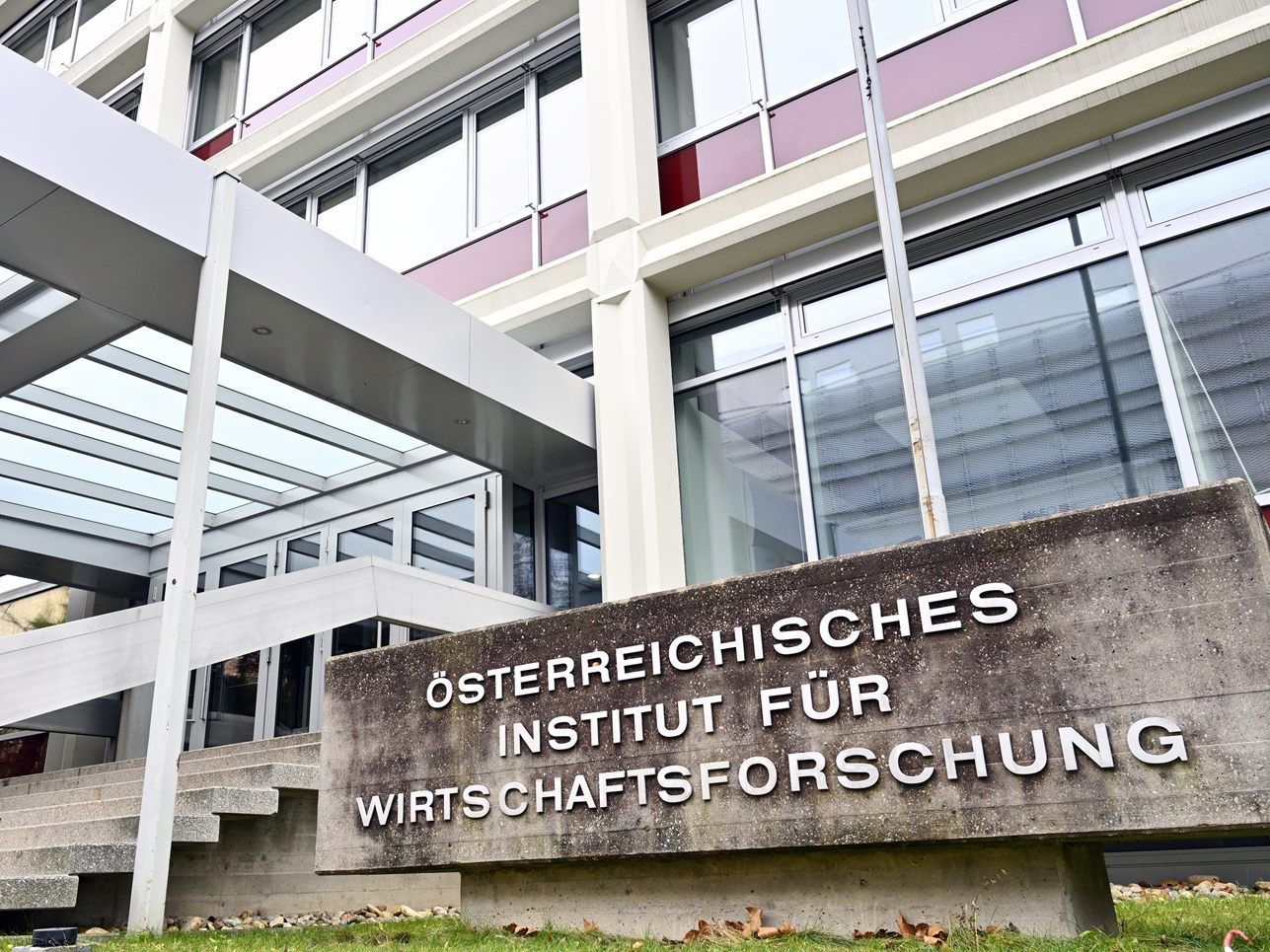Wifo/IHS do not expect a recession year this year after all

A better economic development at the end of 2024 and the beginning of the year makes the economic researchers from Wifo and IHS somewhat more optimistic for the entire year than they were in March. The Austrian economy will stagnate (Wifo) or grow by 0.1 percent (IHS), according to the institutes in their summer forecast presented on Thursday. "In normal times, such stagnation would be anything but a reason for joy," admitted Wifo head Gabriel Felbermayr.
Compared to the spring forecast, at least a third recession year is no longer expected. At the end of March, both institutes had predicted a decline of 0.3 and 0.2 percent, respectively. Felbermayr pointed to a now brightened consumer sentiment and "positive signals" coming from Germany.
Forecast for budget deficit worsened
The budget deficit for 2025 is expected to remain significantly above the Maastricht limit of 3 percent of GDP at 4.1 percent and 4.4 percent, despite the savings package. The forecast for the deficit has thus been worsened compared to the March value, where 3.3 and 3.2 percent were assumed. This also applies to 2026, where the economic researchers now expect a budget deficit of 3.9 and 4.1 percent of the gross domestic product (GDP). The IHS assumes "strict budget discipline" in its forecast - meaning that the savings package guidelines will be implemented. Wifo expects an increase in the national debt ratio to 85 percent by 2026.
The economic researchers warn of a significantly decreased competitiveness of the Austrian economy in recent years. Consumer prices have consistently risen more sharply than in the Eurozone since 2010, said IHS head Holger Bonin. Both economists called for reforms in the pension system and a reduction in non-wage labor costs.
Felbermayr made a notable statement that one should consider introducing an inheritance tax as a counter-financing measure. Bonin agreed. "We have no leeway to lower taxes without counter-financing."
The economy is expected to grow somewhat stronger in 2026. Wifo anticipates a slightly more dynamic recovery to 1.2 percent. IHS expects an annual growth rate of one percent in 2026. This means Austria will clearly lag behind the expected development in the Eurozone. IHS researchers forecast real growth of 1.0 (2025) and then 1.5 percent (2026) for the 20 Euro countries. Wifo's estimate is 1.0 percent, followed by 1.1 percent.
Average inflation rate of 2.9 percent expected
According to the forecasts, the inflation rate is expected to remain relatively high this year. Both Wifo and IHS expect an average inflation rate in Austria of 2.9 percent. In the following year, the development of consumer prices is expected to decrease slightly with estimated inflation rates of 2.2 (Wifo) and 1.9 percent (IHS). Both expect the unemployment rate to rise to 7.5 percent this year, followed by a decrease to 7.3 percent in 2026.
The signs of recovery are increasing, writes Wifo in its release, "although this remains tentative and vulnerable to setbacks." IHS also warns, despite the better growth forecast, of "severe downside risks." These mainly stem from the "erratic tariff policy" of the USA, as well as geopolitical tensions in the Middle East and the war in Ukraine.
A support for the economy this year is private consumer spending, which is expected to increase by 0.4 and 0.7 percent, respectively. For the industry, another year of decline is likely, according to Felbermayr. Nevertheless, it seems to be "gradually finding its way out of the recession." By 2026, all sectors except tourism are expected to grow.
Exports have a dampening effect
This year, exports still have a dampening effect, which, according to Wifo and IHS, will fall by 0.5 percent compared to the previous year. However, in the following year, it is expected to rise again by 1.3 and 1.8 percent. Gross fixed capital formation is also expected to decline again this year (real by 0.7 or 0.5 percent) to contribute to economic growth again in 2026 (+1.4/+0.8 percent).
The international comparison is also interesting. For the most important trading partner Germany, economic researchers expect growth of 0.3 percent this year. The USA is expected to increase its economic output by 1.4 and 1.7 percent, while China's GDP is expected to grow by 4.2 or 4.5 percent.
Government sees mandate, FPÖ myth
"The forecasted upswing is a delicate plant that we must strengthen with all available means and forces to enable growth," responded Minister of Economic Affairs Wolfgang Hattmannsdorfer (ÖVP). Finance Minister Markus Marterbauer (SPÖ) added: "We are contributing to successful economic and social development with reliable budget consolidation and proactive investments in qualification and education." For NEOS budget spokesperson Karin Doppelbauer, the figures are "a clear mandate for further decisive action. Austria is still at the bottom in the EU comparison in terms of economic growth and labor costs."
Criticism came from the FPÖ. "Stagnation is not an upswing," writes the FPÖ economic spokesperson Barbara Kolm. "If 0.1 percent growth is already being sold as a success, it shows how low the economic policy standards have fallen." The increased forecasts for the budget deficit would show that "consolidation is a myth."
Employee representatives concerned about unemployment
The Chamber of Labor (AK) and the Federation of Trade Unions (ÖGB) expressed concern about the labor market situation despite a slightly better economic forecast. "Employment has grown slightly in the two recession years, but this dynamic is now significantly weaker," warns AK President Renate Anderl in a statement, calling for investments in "infrastructure, climate protection, and a good welfare state," a "qualification offensive," an "older employees package with a bonus-malus system," and a "job guarantee for the long-term unemployed."
Angela Pfister, head of the economic policy department at the ÖGB, expressed a similar view: "Savings must not happen at the expense of employees. (...) If consolidation is unavoidable, there must be a focus on fair taxation of large assets and inheritances."
(APA/Red)
This article has been automatically translated, read the original article here.





